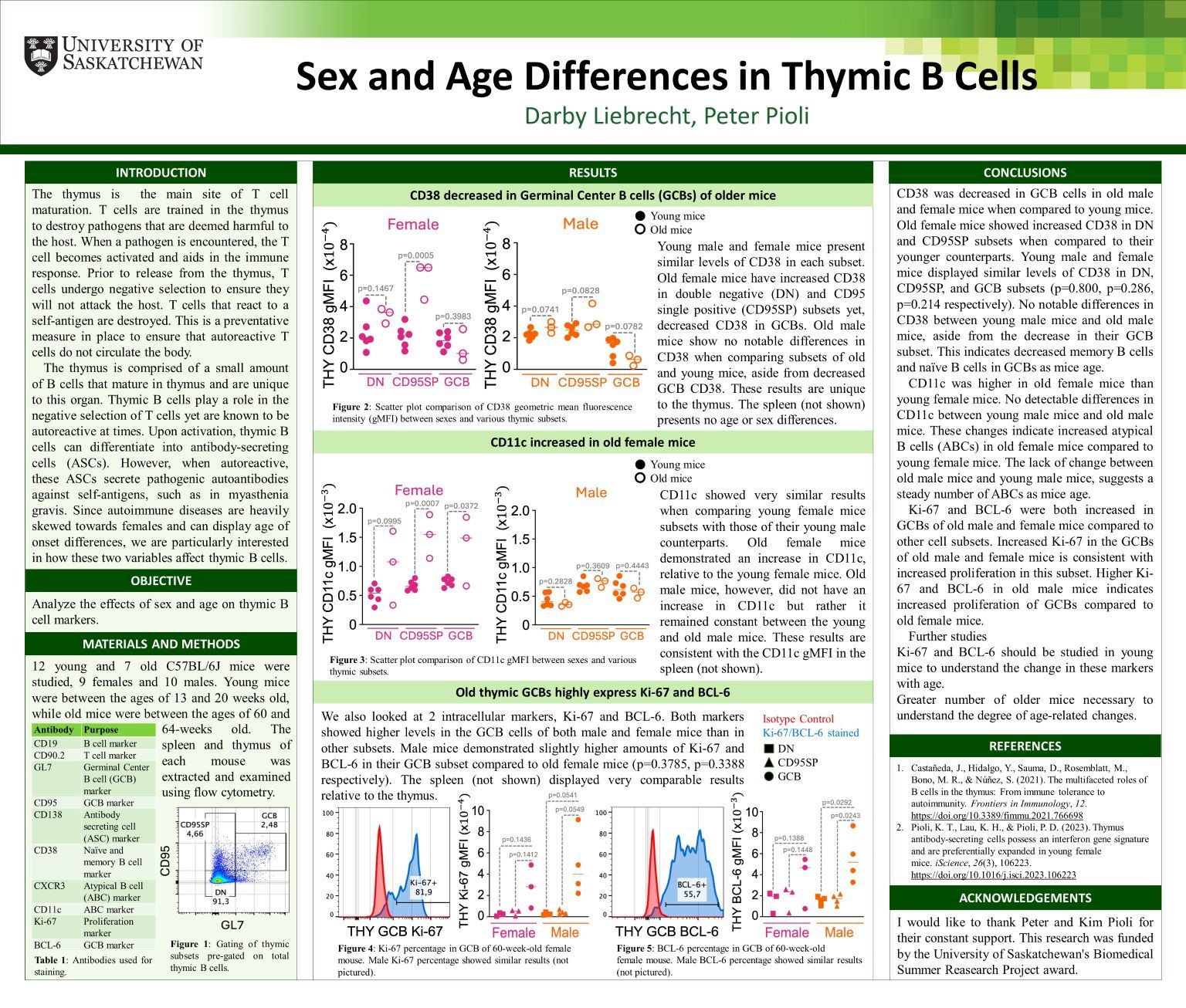
Sex and Age Differences in Thymic B Cells
Darby Liebrecht
T cells are white blood cells that destroy harmful pathogens. When a pathogen is encountered, the T cell becomes activated and aids in the immune response. To ensure proper functioning of T cells, they undergo negative selection with the help of B cells. Upon activation, thymic B cells can differentiate into antibody-secreting cells (ASCs). If autoreactive, these ASCs secrete pathogenic autoantibodies against self-antigens, as seen in many autoimmune diseases such as myasthenia gravis. Autoimmune diseases are heavily skewed towards females and display age of onset differences, which raises the question of how these two variables affect thymic B cells. To answer this question, the spleen and thymus were extracted from young and old male and female mice and examined using flow cytometry.
Our experiments revealed a decreased in thymic CD38 of old male and female mice in Germinal Center B cells (GCBs) compared to their younger counterparts. We also observed increased CD11c in the thymus of old female mice compared to young female mice. Male mice, however, did not display any age-related differences. Lastly, we noticed an increase in thymic Ki-67 and BCL-6 in GCBs of male and female mice.
